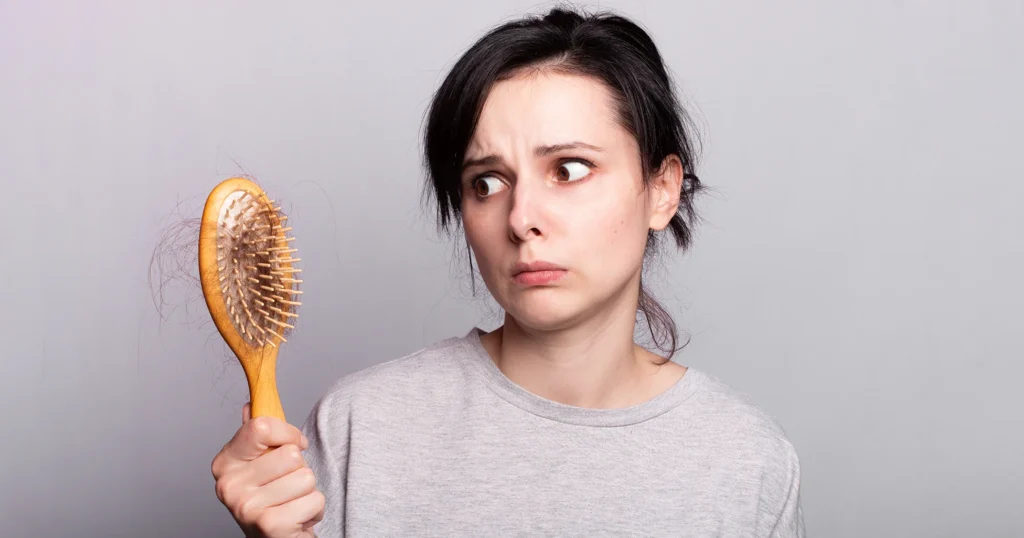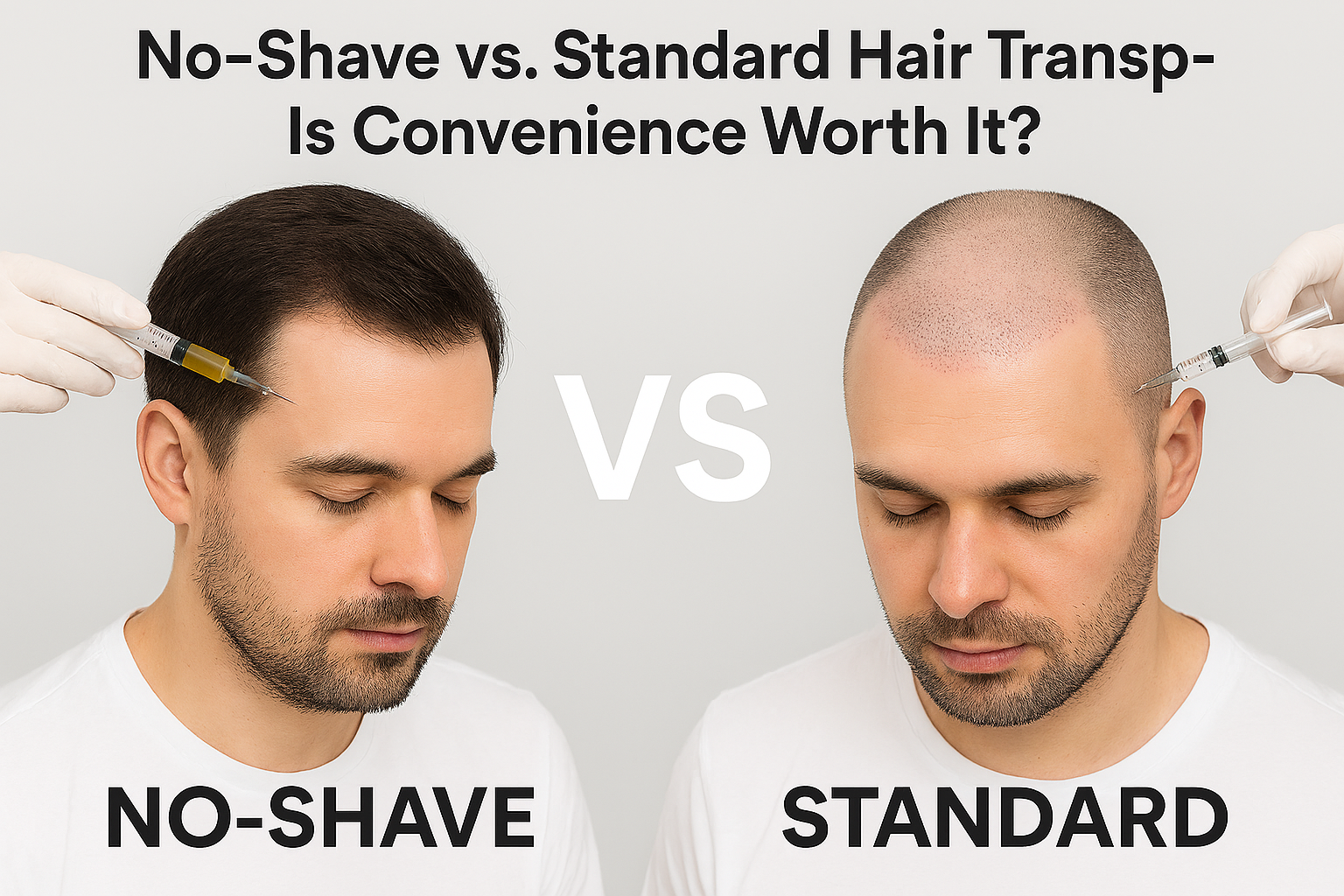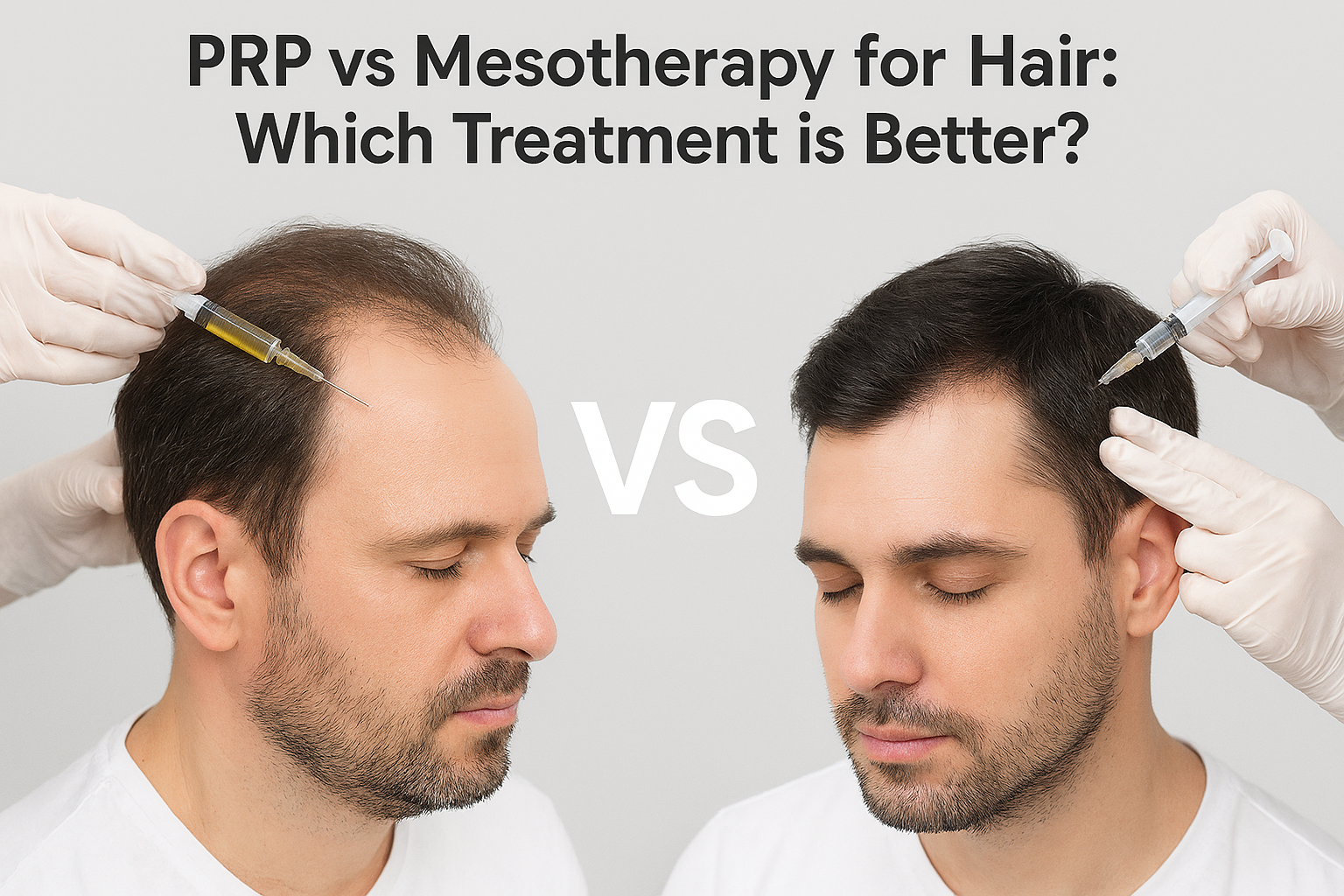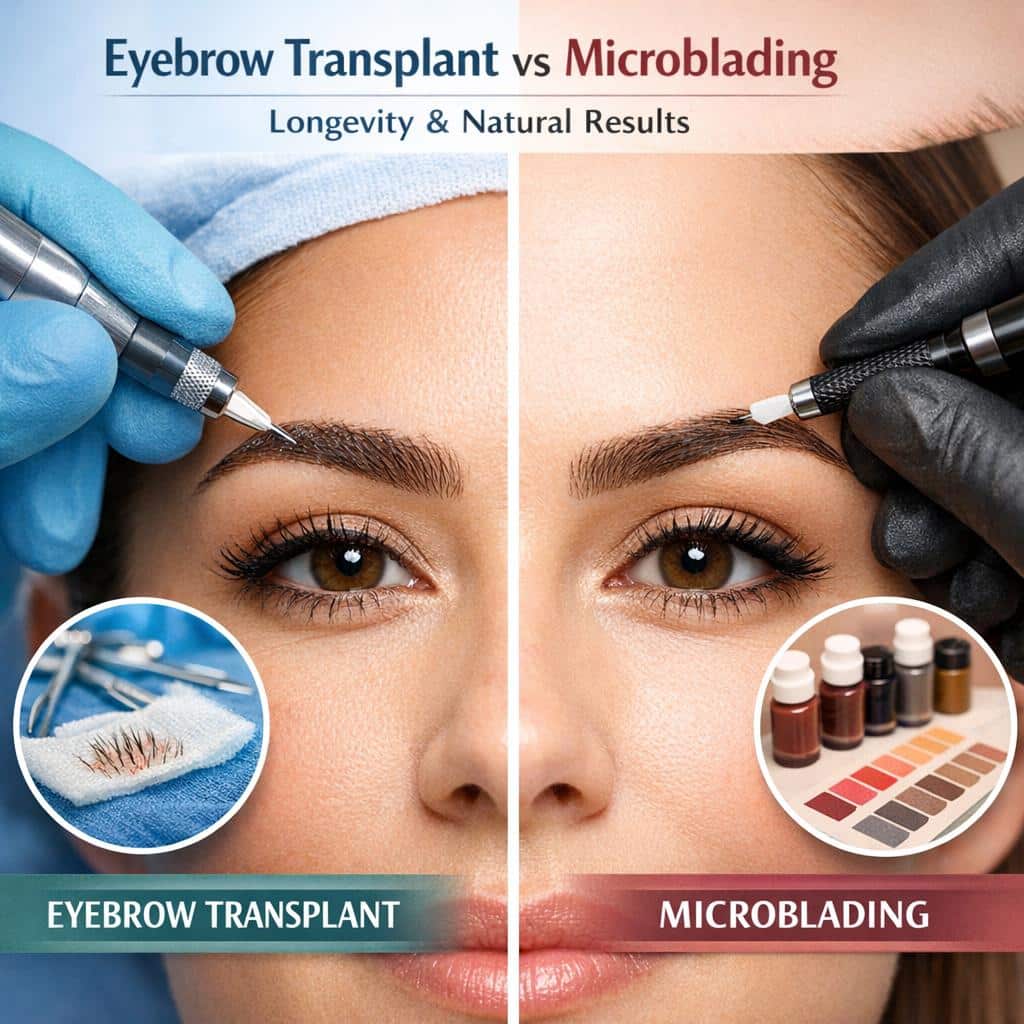Biotin for hair loss: benefits and side effects
Using biotin for hair has been a popular remedy for many years, celebrated for its powerful benefits.
Commonly found in cosmetic treatments, it is often used to address issues like dermatitis, brittle nails, and weak hair.
But what does biotin actually do for your hair? Does it truly prevent shedding? And most importantly, is it an effective solution for hair loss?
If you are researching hair transplant cost in Turkey to solve your hair loss permanently, understanding the role of vitamins is crucial.
Biotin can be a valuable ally in your hair restoration journey—but how exactly does it work? Read on to discover the essential facts.
Biotin can be a valuable ally in your hair restoration journey—but how exactly does it work? Read on to discover the essential facts.
Biotin for Hair Loss: What Is It & How Does It Work?
Biotin (also known as Vitamin B7 or formerly Vitamin H) is a water-soluble vitamin essential for metabolizing carbohydrates, fatty acids, and amino acids like valine and isoleucine.
It plays a critical role in the biochemical processes that convert nutrients into energy our cells can use .
Unlike fat-soluble vitamins, biotin isn’t stored in the body. While our intestinal bacteria produce it, it’s unclear if we can absorb significant amounts this way. Primarily, we obtain biotin through diet .
Most importantly for hair health, biotin is vital for keratin production—the key structural protein in hair, skin, and nails. This makes it essential for maintaining strong, healthy hair and nails.
Biotin Benefits for Hair Growth & Hair Loss Prevention
What are the benefits of biotin for hair? This essential vitamin improves blood circulation to the scalp, delivering vital nutrients to hair follicles and promoting healthier hair growth .
Biotin doesn’t just nourish the scalp—it strengthens hair shafts, adding elasticity and that coveted shiny, healthy appearance .
What happens when you’re deficient? Without adequate biotin, hair becomes thinner, more brittle, and prone to excessive shedding.
Growth slows dramatically, leaving hair looking dull and lifeless .
Harvard University research confirms biotin as one of the primary nutrients for maintaining hair strength, texture, and appearance.
This explains why biotin for hair loss appears in countless shampoos, supplements, and treatments—especially biotin + collagen formulas promising thicker, stronger hair.
Foods Rich in Biotin for Hair Growth
Wondering what biotin-rich foods can boost your hair health? These nutrient-packed options naturally provide the vitamin your follicles need:
Animal-Based Biotin Sources:
- Organ meats (liver, kidney)
- Egg yolks
- Oily fish (salmon, mackerel)
- Dairy products (cheese, yogurt)
Plant-Based Biotin Sources:
- Nuts (almonds, peanuts, walnuts)
- Legumes (soybeans, lentils)
- Bananas
- Whole grains
- Cauliflower
- Mushrooms
- Sunflower seeds
Most people get sufficient biotin through daily diet.
However, if you’re experiencing hair thinning or want optimal hair growth—especially post hair transplant—biotin tablets or supplements offer a targeted solution.
What Causes Biotin Deficiency?
Biotin deficiency is rare but can occur in specific groups:
High-Risk Groups:
- People with metabolic disorders or malnutrition
- Alcoholics and athletes
- Epilepsy patients, elderly, and those with gastrointestinal surgery
- Pregnant women (studies show 50% develop deficiency due to increased vitamin demand)
- Diabetes patients
Dietary Causes:
Long-term consumption of raw egg whites contains avidin, a protein that binds biotin and prevents absorption .
Common Symptoms of Deficiency:
Hair thinning, brittle nails, and skin rashes.
Medications That Deplete Biotin Levels
Certain medications can significantly reduce biotin levels, potentially increasing your vitamin requirements:
Common Culprits (Anti-Seizure Drugs):
- Carbamazepine
- Phenobarbital
- Phenytoin
- Primidone
Additional Interactions:
Many vitamins, herbal supplements, and other medications may also interfere with biotin absorption.
Safety Note: Biotin is safe up to 10 mg daily with no recorded side effects. Still, consult your doctor or pharmacist before starting supplementation—especially if you’re on long-term medications.
Biotin Deficiency Symptoms
No reliable lab test exists for biotin deficiency—diagnosis relies entirely on symptoms:
Hair & Skin Symptoms:
- Hair loss (often with loss of pigmentation)
- Red rash around eyes, nose, and mouth
- Conjunctivitis
- Swollen face with irregular fat distribution
Neurological Symptoms:
- Depression and fatigue
- Hallucinations
- Numbness in hands and feet
Long-term Effects:
Chronic deficiency weakens the immune system, increasing risk of fungal and bacterial infections.

Biotin Dosage: How Much Should You Take?
Biotin supplements typically come in capsules, often combined with collagen or hyaluronic acid for enhanced hair benefits. However, without medical supervision, you risk exceeding safe limits and experiencing side effects.
Recommended Daily Dosage by Age Group:
- Adults (10+ years): 30-100 mcg
- Pregnant/Breastfeeding: 35 mcg
- Children 7-10 years: 30 mcg
- Children 4-6 years: 25 mcg
- Children 0-3 years: 10-20 mcg
Important Notes:
- FDA has no official upper limit due to biotin’s rarity as a deficiency
- Dosage varies by age, sex, health condition
- Maximum safe dose for women: 30 μg daily
- Supplements can interfere with lab tests
- Biotin injections (by medical professionals only) may accelerate hair growth
Bottom Line: Always consult a specialist before starting high-dose biotin therapy.
How Long Until Biotin Results Appear?
Limited research exists on biotin timelines, but two key studies provide guidance:
2012 & 2015 Clinical Studies Show:
- 90+ days required for noticeable improvements
- Benefits observed: Increased hair growth + enhanced shine
Realistic Expectations:
Biotin works gradually by supporting follicle health from within. Patience is essential—results typically appear after 3 months of consistent use.
Pro Tip: Combine biotin with a nutrient-rich diet for optimal results.
Biotin Side Effects: What to Watch For
While biotin benefits for hair are well-documented, exceeding the recommended dose can cause problems:
Common Side Effects:
- Nausea (especially initially)
- Stomach issues and diarrhea
- Allergic reactions (facial/throat swelling, body rashes)
- Acne on lower face
- Increased miscarriage risk in pregnancy
Other Medical Benefits of High-Dose Biotin
Under medical supervision, higher doses benefit certain conditions:
- Multiple sclerosis (MS) symptom improvement
- Nerve pain reduction in diabetes patients
- Blood sugar control (with chromium)
- Muscle cramp relief in dialysis patients
- Mental/motor function improvement (with thiamine)
Does Biotin Actually Help Hair Growth?
The evidence is mixed. While lab studies show hair growth benefits, critics note many products contain other active ingredients.
Clear Evidence Exists For:
- People with proven biotin deficiency
- Chronic/temporary deficiency cases
Important Reality Check: Hair loss has multiple causes. Biotin alone won’t solve genetic baldness or hormonal issues. Comprehensive diagnosis remains essential.
Why Take Biotin After Hair Transplant Surgery?
Does biotin help post hair transplant recovery? Medical consensus leans toward yes. Most hair specialists recommend biotin supplementation for at least 6 months post-surgery to:
- Accelerate new hair growth
- Strengthen transplanted follicles
- Reduce post-operative inflammation
- Enhance overall hair quality
Expert Recommendation: Combine Biotin (B7) with B12 and other B-complex vitamins for optimal results.
At Clinicana, we integrate biotin therapy into our comprehensive post-transplant care protocol.
Don’t just take our word—see our patient reviews and discover why we’re Turkey’s top-rated hair transplant clinic.
Ready for stronger results? Schedule your free consultation today. No obligation.

For many individuals facing hair loss, the decision to undergo a hair transplant is not hindered by the surgery itself, but by the recovery phase. Specifically, the prospect of shaving one’s head is a significant psychological barrier. In our clinical practice, we frequently meet patients—ranging from high-profile executives to women with diffuse thinning—who delay necessary […]

Investing in a hair transplant is a significant decision that represents a commitment to restoring not just your hair, but your self-confidence. However, the procedure itself is only the beginning of the journey. Once you leave the operating room, your scalp enters a critical recovery phase where the newly implanted follicles must anchor themselves and […]

The eyebrows are one of the most defining features of the face, framing the eyes and conveying emotion. However, for many people, achieving the perfect brow is a daily struggle involving pencils, powders, and gels. Over-plucking in the past, genetic thinning, or medical conditions can leave brows sparse or misshapen. In the quest for a […]












